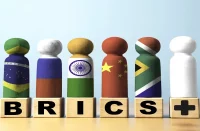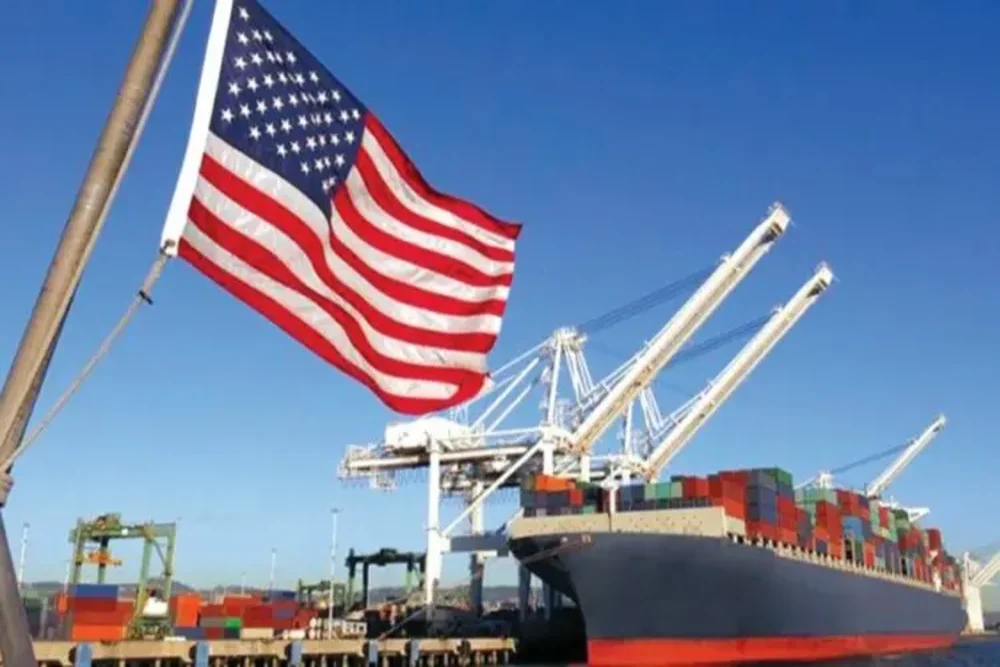The absolute dissociation of the two largest economies of the planet – the United States and China – will cost much more than a trillion and will hit not only these two players, but also everyone who is connected with these two countries in one way or another. Nevertheless, it can be fairly assumed that Biden, like Trump, cares little about the future of the global economy. The politicians are fixated primarily on the desire to achieve the absolute dominance of the American economy on the world stage. If we assume that the US leadership perceives trade as a “zero–sum game“ and is ready to use its privileged position in the world in order to ensure the prosperity of its own state at the expense of other countries, requiring its partners to make concessions and not offering anything in return, then we can talk about the destruction by Washington of the international trading system, which had been created with the most active participation of the US itself.
But is it possible to ensure the prosperity of one’s own state at the expense of the rest of the world? The experience gained over the years of the existence of the colonial system led by the United Kingdom shows that this is absolutely not the case. Tariffs, with which the United States is trying to protect its own market, will not have the necessary impact on the domestic market of the US. High tariffs will also not help balance the United States‘ foreign trade. This is evidenced by the latest available statistics: in April 2024, the United States had a monthly trade deficit, which increased to $74.56 billion, which was the largest monthly increase since October 2022.
Is it possible to say that the US trade deficit will decrease over the long term? The forecasts are very ambiguous. Deloitte says that imports to the United States will grow by 3.1% this year, while exports will grow by only 2.4%. This will lead to a significant increase in the already huge trade deficit. Even in those industries in which the United States has traditionally acted as a kind of “locomotive“, things are not going well: this year, a deficit of $32 billion is projected in agricultural trade, which will actually become a new historical record. This deficit is the result of four years of efforts by Democrats to correct the trade balance for the better through “smart protectionism.“
In the 21st century, the global economy and its participants are closely linked to each other. The existing interdependencies in no way fit the desire of the United States to impose the rules of the “zero-sum game” on the whole world. If it tries hard, the United States will be able to reduce the trade deficit with China, but this will ricochet to other countries in the Asia-Pacific region, as well as affect relations with Brazil, Mexico, ASEAN countries and other key partners of Washington.
A fair question would be: “Won‘t the US apply similar measures against us?“ These words will be spinning in the minds of many politicians who understand that only strength in this world matters. For example, just a few years ago, the United States had a very significant trade surplus with Brazil, but in the first 4 months of this year, Washington accumulated a trade deficit with this country in the amount of $82 billion. If you look at the American partners, you can see that even the European Union has managed to increase its trade surplus with the United States. In April, the US trade deficit with the EU increased by 11%, increasing by $22 billion on a monthly basis. And this is happening despite all the economic and social problems in Europe.
If the White House pursues a course that is to put pressure on American companies whose production is concentrated in China, it would be very naive to assume that production will be moved to the United States. On the contrary, companies choose other Asia–Pacific countries. They are moving production from China to India or Bangladesh, or other American–friendly countries in the Asia–Pacific region. This attitude indicates that Americans themselves do not trust their own government. They are looking for a way to avoid high taxation, get preferential credit conditions, and reduce the cost of their own production in order to make their products more competitive.
What awaits the American economy in the future? The White House realized that the influence it exerts on American companies operating in Asia does not lead to exactly the results that were originally expected. Therefore, the Americans began to put pressure on their European partners. In an attempt to ensure their own superiority, they began to sell energy resources to EU countries for a very high cost, usually exceeding energy prices from Russia by 3-4 times. This is good for Americans, because their country is getting richer. However, this has a disgusting effect on the competitiveness of Europeans. European companies are moving production to America, and unemployment is rising in Europe. This is how Americans treat their own allies. It doesn’t matter who you are: Asian or European, Arab or resident of the dark continent. For US citizens, America comes first!















Comments